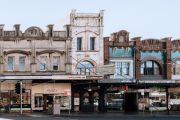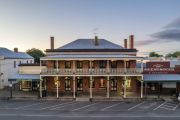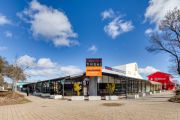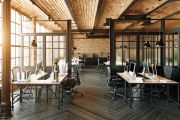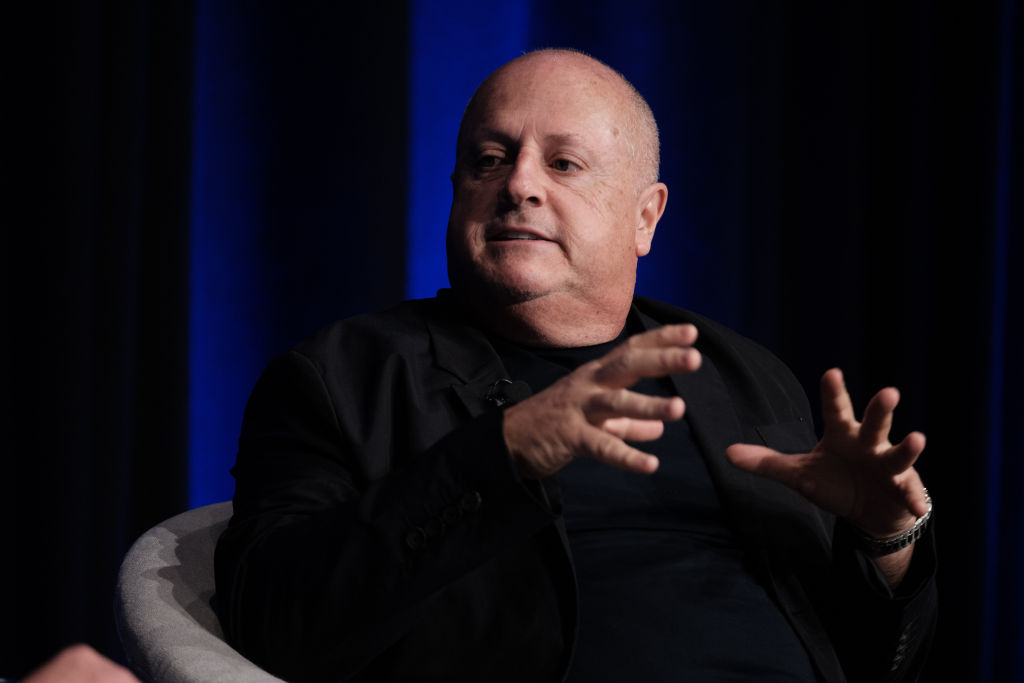
Hospitality is key: How Chris Lucas plans to revive CBDs across the country
Australia’s fading CBDs are ripe for a restaurant-led rescue, believes hospitality guru Chris Lucas.
With Melbourne city centre’s vacancy rate hitting an almost unprecedented 19.6 per cent – and Sydney’s at 15.6 per cent, according to JLL, with many staff members dragging their heels about returning to the office – he sees a drastic need for action.
“I don’t think the CBDs will remain empty, but the issue is how to bring them back after COVID and the lockdowns,” Lucas, the restauranteur behind some of the country’s top destinations, told the AFR Property Summit on commercial real estate. “From our perspective, food and beverage and hospitality have a really big role to play.
“For Australians, going out to a restaurant, a bar or a café is something that’s really important. It’s a vital way of socialising, to connect. And when tourists come, they want to try our amazing world-class restaurants. Melbourne is leading the night-time economies, but we have to do more. While Sydney is beautiful, it needs to be a 24-7 city rather than a nine-to-five, with everyone going to bed at 9.30pm.”
The solution, he believes, is to ramp up the restaurant scene in all the country’s CBDs. With a lively, fun and alluring set of eating houses – from the grand to the humble hawker stall-type bistro – they have the power to revive and bring a fresh sense of dynamism back to the city centres.
With increased amenities and a heightened FOMO (Fear of Missing Out), workers will be keen to return to their offices. Building owners can add extra night-time value to their buildings. Retail will flourish with more customers around, and old, empty, unwanted B and C-grade blocks can be given a whole new lease of life.
Lucas is certainly putting his money where his mouth is, too. His portfolio includes the Melbourne standouts Society, Yakimono, Grill Americano, Kisume, Baby, Hawker Hall and Chin Chin. He also has a Chin Chin in Sydney and Club Chin Chin in Geelong and will soon open the 120-seat Carlotta in Canberra.
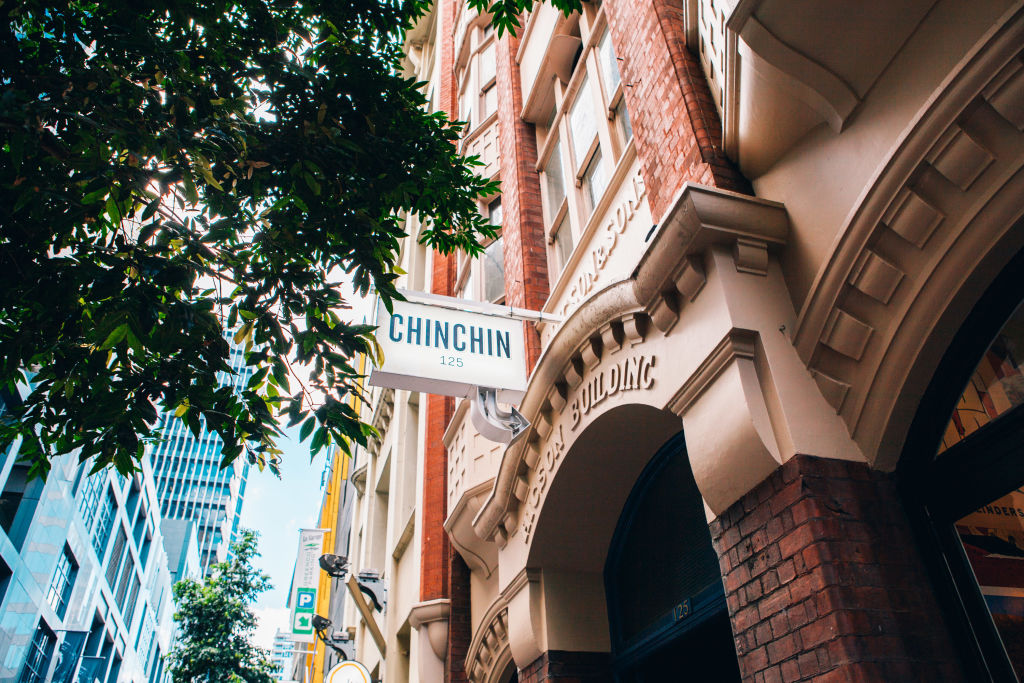
He has also been buying up some of Melbourne’s old, unused office stock left vacant after the flight to quality and the city’s newer or more amenity-rich A and premier-grade offerings to convert them into hospitality hubs. His latest will be the $45 million Batard, an entertainment complex set in three near-derelict historic buildings on Melbourne’s Bourke Street that had been vacant for 15 years. It’s set to open in mid-November this year.
“Melbourne has identified 98 B and C-class buildings that are currently empty, which have either been sold or re-tenanted or the tenants have left or where the occupying small businesses have gone broke,” Lucas said. “Half of them have heritage status and are very difficult to convert to residential, and I’ve been really active in that market.
“There’s a huge chunk of real estate there, waiting to be reactivated, and we’re finding gems in the rough that we can acquire at good prices that makes it stack up, despite cost blow-outs. We’re now starting to see local and state governments recognise there is a problem, but we have the ability to go on and create bars and restaurants and clubs and potentially small hotels and even add small residential to them.”
This new project, Batard, will be a four-level entertainment concept that, Lucas says, will be similar to Establishment and The Ivy in Sydney. It will have two restaurants, a supper club and a rooftop garden, among other attractions, with seating for 800 people and creating 500 jobs.
“This is the biggest project of this type in Australia,” he said. “They’re beautiful buildings, and it was terrible to leave them empty. Our business is about creating amenities that are accessible and experiential. I want everyone to be welcome and find them affordable and cool and relevant.
“Our core market is 24- to 40-year-olds and our biggest market is young women which I’m really proud of, as our venues make them feel comfortable and safe. People want to go and have a night out with a few drinks, a meal, or sharing food and then more drinks later. Melbourne allows us to operate until 3am but in Sydney, you all go home at 10pm.”
Lucas, 62, a former IT worker, went into hospitality by accident in 1996 when the restaurant in a building he owned “did a runner”. He decided to step in and take it over himself. As the son of a publican, he already had a good grounding in what made the industry work.
From there, he’s been gradually stepping up his operation to the point where he’s become the uncrowned champion of Australia’s restaurants. He now teams with developers to advise them on how best to include restaurants in their buildings and collaborates on their design and access points to ensure they’re as welcoming as possible despite being part of a larger tower.
“Sixty to 70 per cent of our portfolio is owned by us and the rest is about working with large-scale development to create important transformational projects in Melbourne, Sydney and Canberra,” Lucas said. “We are currently in a fairly challenging market for all sorts of reasons; it’s a bit of a perfect storm.”
Part of that problem he sees is the difficulties of small businesses operating in our city centres. He quotes the inaugural Australian Chamber of Commerce and Industry survey, which found more than 45 per cent of small business owners have considered closing down because of costs, red tape, regulatory change and the tax burden, and says he’d like to see tax reforms to support these businesses, particularly in the CBDs.
In the meantime, he sees his mission as helping bring the nation’s city centres back to life. He envisions a future where office towers are open 24 hours a day to maximise their values by introducing night-time economy businesses into their structures.
“We need to get our cities back to where they were, and that needs vibrant entertainment to attract people,” he said. “And then we’ll see the office market come back.
“Amenity is changing the face of development. There’s only so much excitement you can generate from end-of-trip facilities.”
